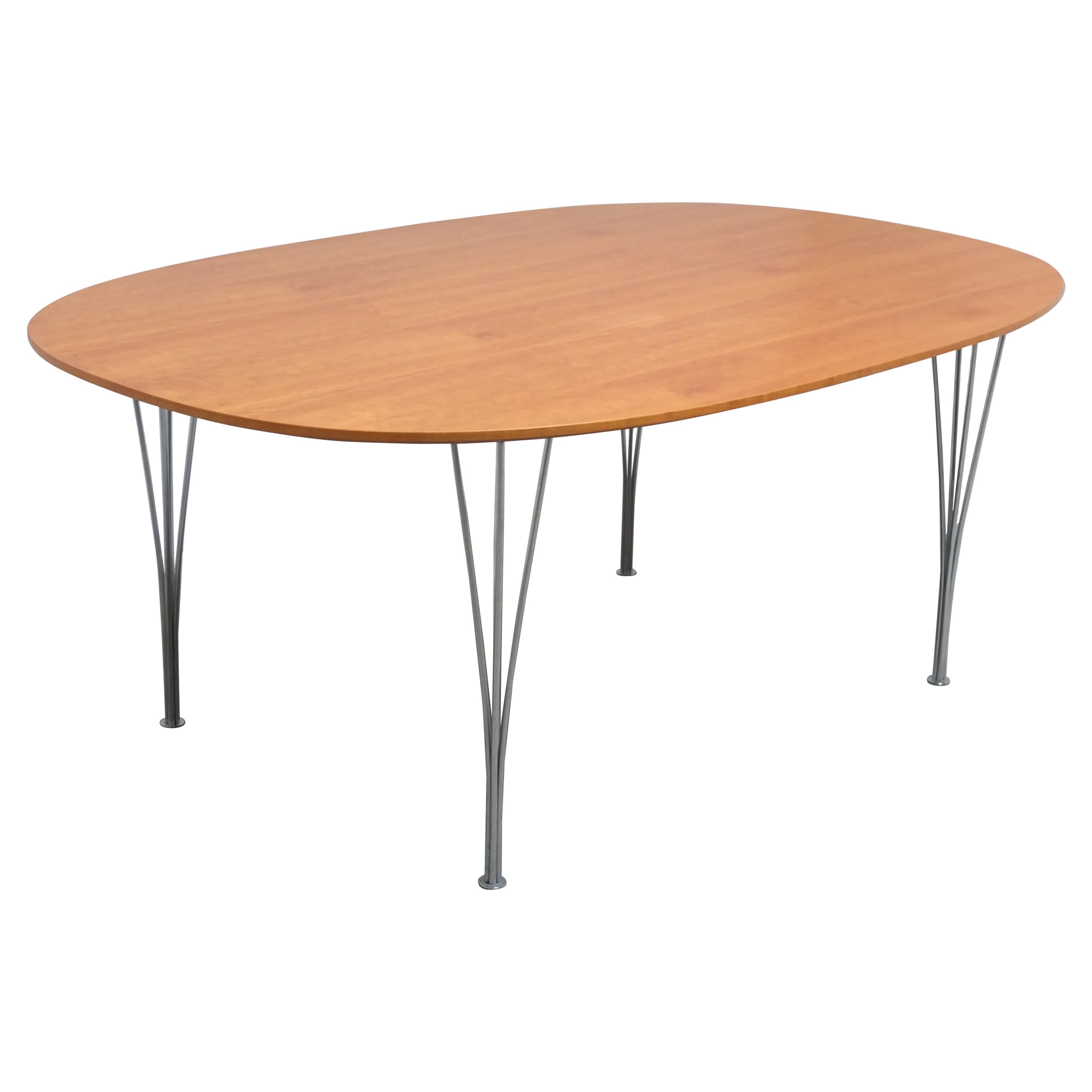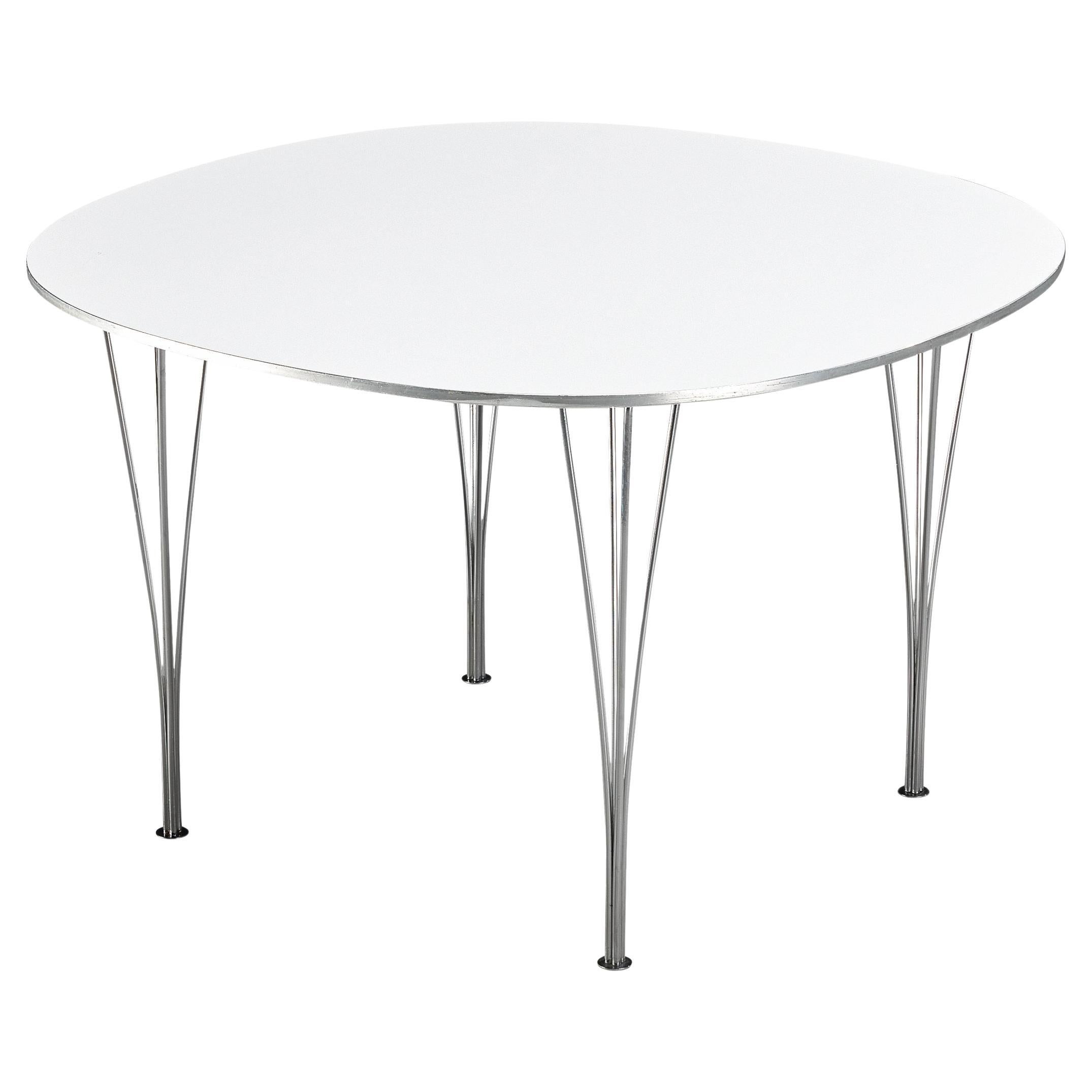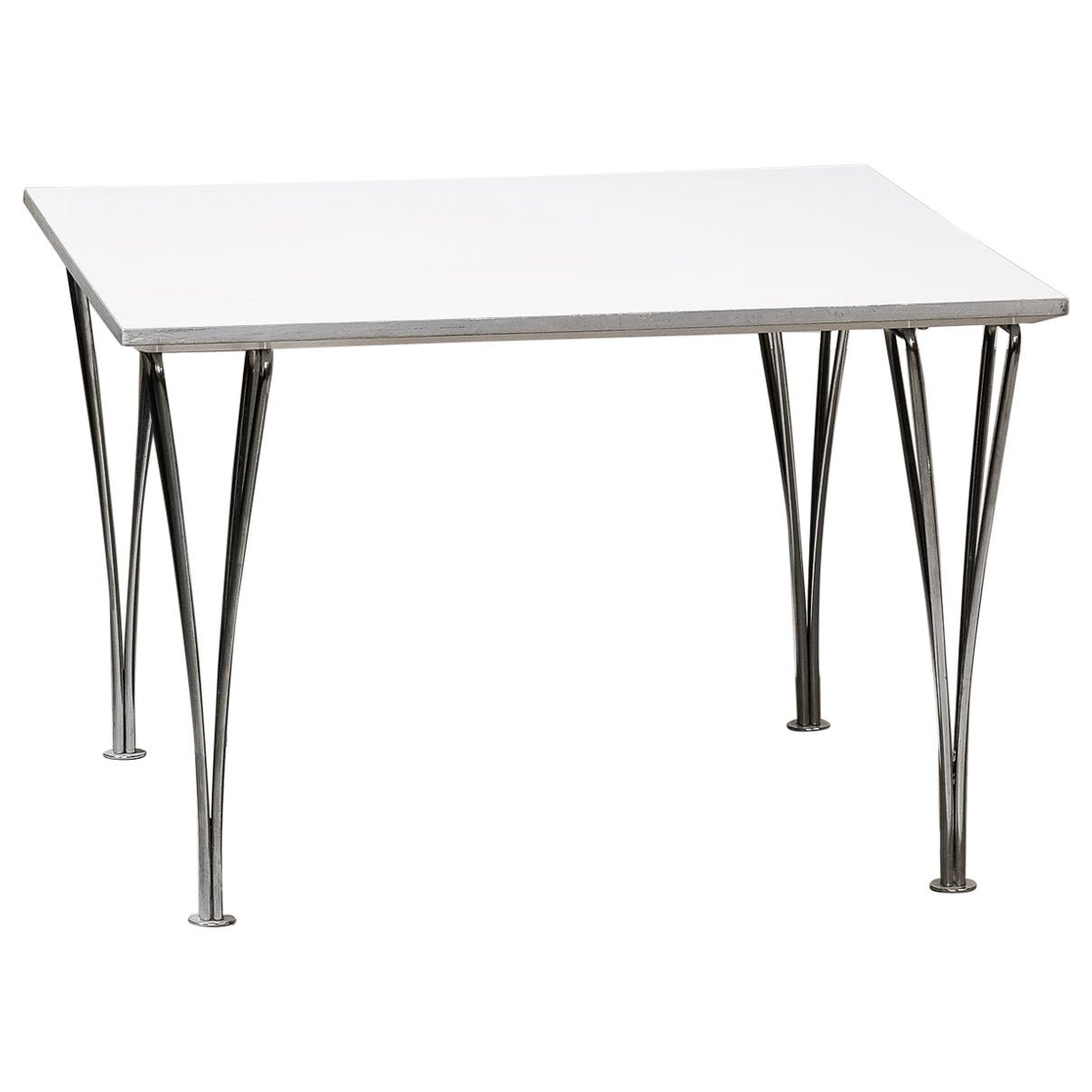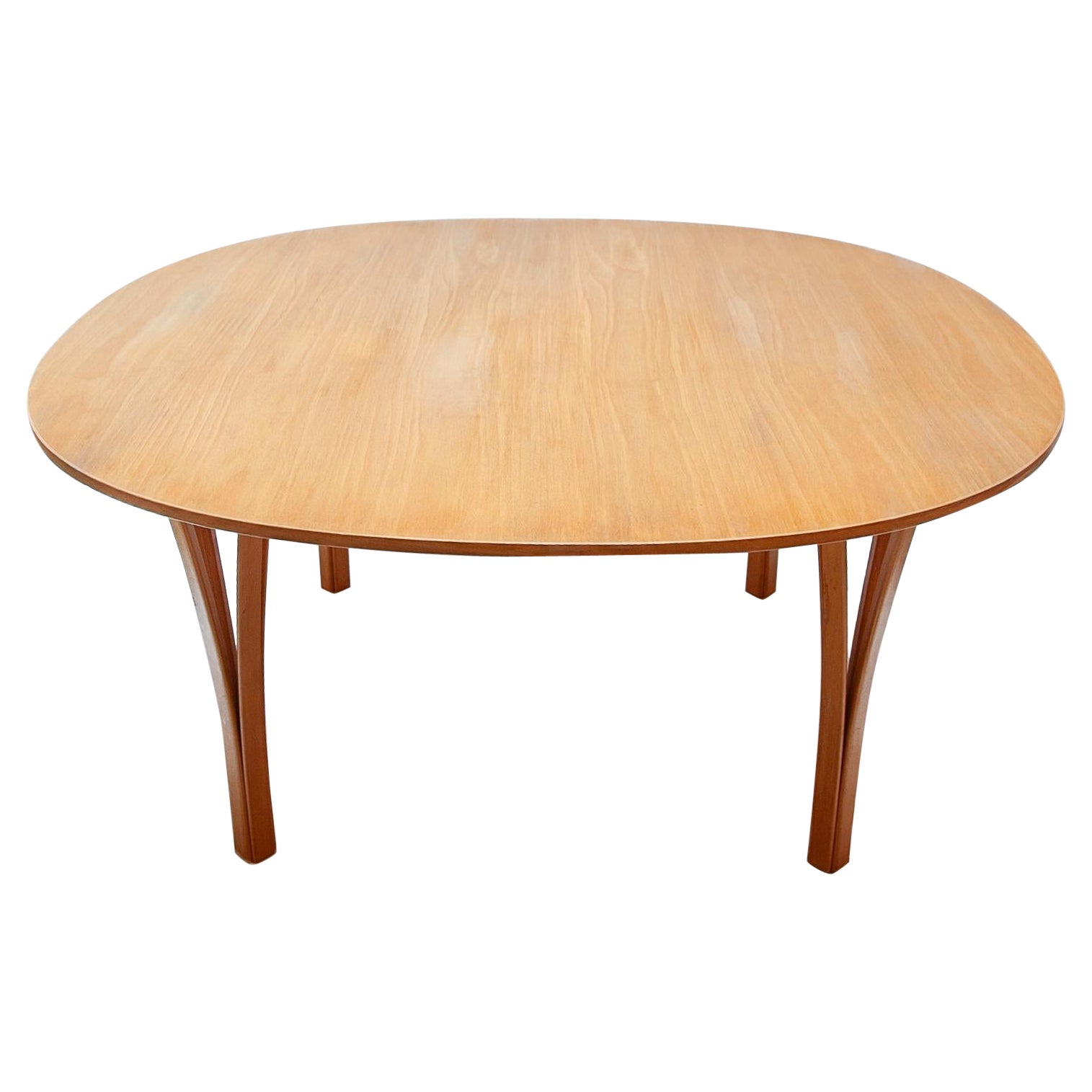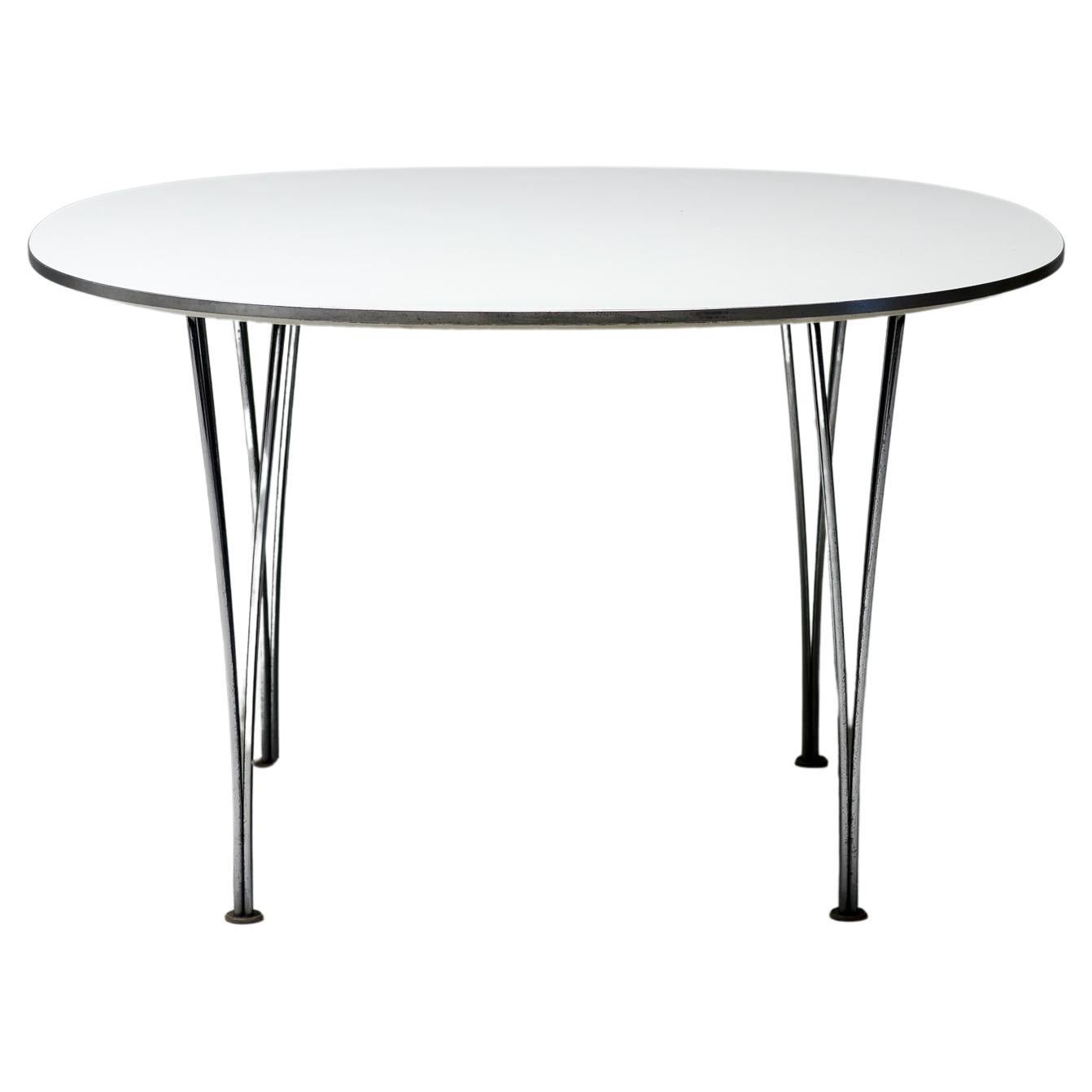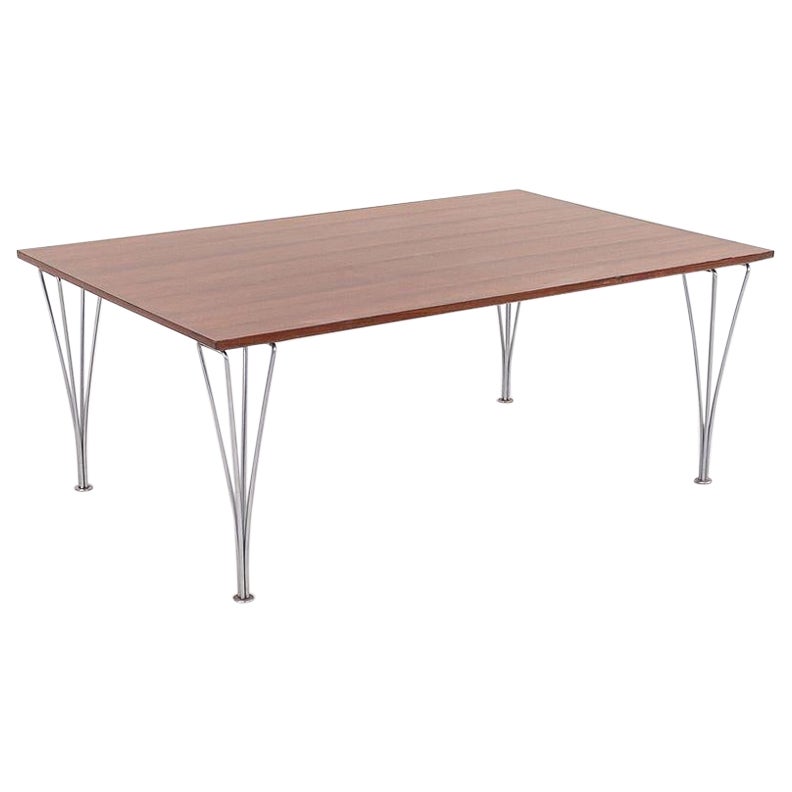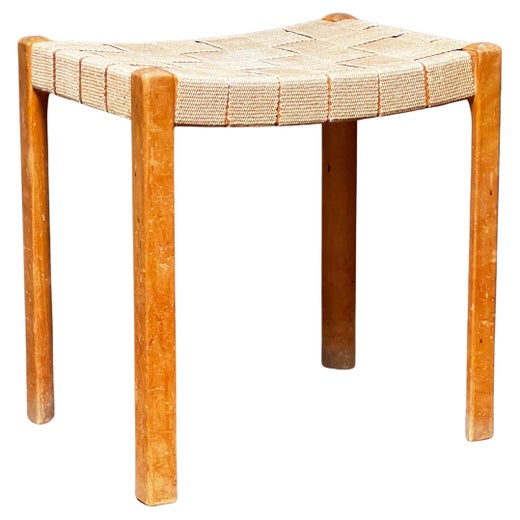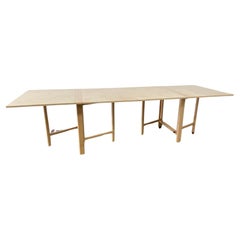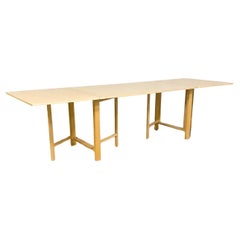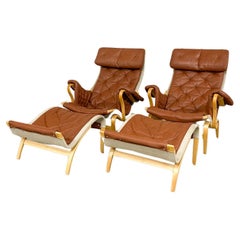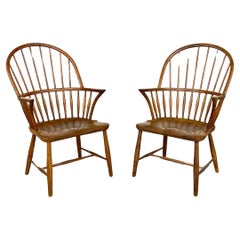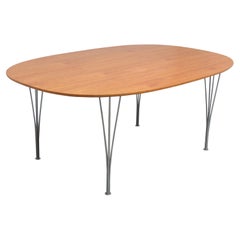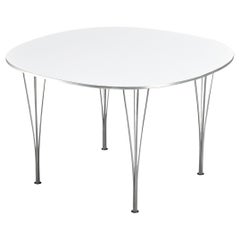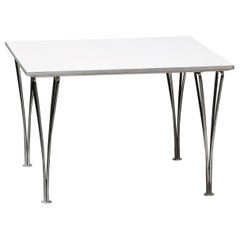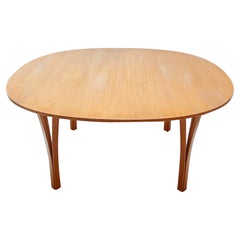Superellipse Table by Bruno Mathsson and Piet Hein for Fritz Hansen
About the Item
- Creator:
- Dimensions:Height: 25.6 in (65 cm)Width: 59.06 in (150 cm)Depth: 35.83 in (91 cm)
- Style:Scandinavian Modern (Of the Period)
- Materials and Techniques:
- Place of Origin:
- Period:1990-1999
- Date of Manufacture:Unknown
- Condition:Wear consistent with age and use. Minor losses.
- Seller Location:Radomsko, PL
- Reference Number:1stDibs: LU9780239528682
Bruno Mathsson
As the descendant of four generations of Swedish master cabinetmakers, Bruno Mathsson was born to design furniture. Mathsson was known as a methodical perfectionist who made usefulness the fundamental attribute of his iconic lounge chairs, tables, armchairs and other works, yet he was also a ceaseless experimenter, who constantly searched for improvements in form, materials and methods of design.
Like the Finnish designer Alvar Aalto, Mathsson was one of the first Scandinavians to embrace undulating, biomorphic forms in furniture. His early pieces such as the Eva and Pernilla series of chairs incorporate dramatically flowing bent beechwood frames, making them some of the most instantly recognizable works of 20th-century design.
Mathsson was also a pioneer of ergonomics — he is said to have based the contours of his chairs on the impression his body made when he sat in a snow bank — and used supple, accommodating woven webbing for seats. His concern for practicality is shown by pieces such as the Maria table. An elegant design with gate legs and hinged leaves, the table measures more than nine feet long when fully extended, but folds down to just nine inches in thickness.
From the mid-1940s through the 1950s, Mathsson focused on architecture, designing and building houses with insulated, triple-glazed window walls and heated floors — construction that flew in the face of traditional wood-clad Swedish residential design, and consequently met with some skepticism. He returned to furniture in the 1960s, employing an entirely new suite of materials: Stainless-steel framing and mesh seats feature in pieces like the Jetson chair; with the mathematician Piet Hein, Mathsson designed the Super-Elliptical table, which has a laminate top and four-part tubular steel legs that sprout like flower stems from a single base.
Bruno Mathsson’s stylistic flexibility as a designer made him a creator whose pieces meet all tastes and needs.
Find vintage Bruno Mathsson dining tables, seating and other furniture on 1stDibs.
Fritz Hansen
When the Copenhagen-based furniture maker Fritz Hansen opened for business more than 140 years ago, the company — which today styles itself The Republic of Fritz Hansen — adhered to the traditional, time-honored Danish values of craftsmanship in woodworking and joinery. Yet thanks to the postwar innovations of Arne Jacobsen and others, Fritz Hansen would become the country’s leader in Scandinavian modern design using new, forward-looking materials and methods.
Fritz Hansen started his company in 1872, specializing in the manufacture of small furniture parts. In 1915, the firm became the first in Denmark to make chairs using steam-bent wood (a technique most familiar from birch used in the ubiquitous café chairs by Austrian maker Thonet). At the time, Fritz Hansen was best known for seating that featured curved legs and curlicue splats and referenced 18th-century Chippendale designs.
In the next few decades, the company promoted simple, plain chairs with slatted backs and cane or rush seats designed by such proto-modernist masters as Kaare Klint and Søren Hansen. Still, the most aesthetically striking piece Fritz Hansen produced in the first half of the 20th century was arguably the China chair of 1944 by Hans Wegner — and that piece, with its yoke-shaped bentwood back- and armrest, was based on seating manufactured in China during the Ming dynasty. (Wegner was moved by portraits he’d seen of Danish merchants in the Chinese chairs.)
Everything changed in 1952 with Arne Jacobsen’s Ant chair. The collaboration between the architect and Fritz Hansen officially originated in 1934 — that year, Jacobsen created his inaugural piece for the manufacturer, the solid beechwood Bellevue chair for a restaurant commission. The Ant chair, however, was the breakthrough.
With assistance from his then-apprentice Verner Panton, Jacobsen designed the Ant chair for the cafeteria of a Danish healthcare company called Novo Nordisk. The chair was composed of a seat and backrest formed from a single piece of molded plywood attached, in its original iteration, to three tubular metal legs. Its silhouette suggests the shape of the insect’s body, and the lightweight, stackable chair and its biomorphic form became an international hit.
Jacobsen followed with more plywood successes, such as the Grand Prix chair of 1957. The following year he designed the SAS Royal Hotel in Copenhagen and its furnishings, including the Egg chair and the Swan chair. Those two upholstered pieces, with their lush, organic frames made of fiberglass-reinforced polyurethane, have become the two chairs most emblematic of mid-20th-century cool. Moreover, the Egg and Swan led Fritz Hansen to fully embrace new man-made materials, like foam, plastic and steel wire used to realize the avant-garde creations of later generations of designers with whom the firm collaborated, such as Piet Hein, Jørn Utzon (the architect of the Sydney Opera House) and Verner Panton. If the Fritz Hansen of 1872 would not now recognize his company, today’s connoisseurs certainly do.
Find a collection of vintage Fritz Hansen tables, lounge chairs, sofas and other furniture on 1stDibs.
- ShippingRetrieving quote...Shipping from: Radomsko, Poland
- Return Policy
More From This Seller
View AllMid-20th Century Swedish Mid-Century Modern Dining Room Tables
Wood, Birch
Mid-20th Century Swedish Mid-Century Modern Dining Room Tables
Wood, Birch
Mid-20th Century Swedish Mid-Century Modern Lounge Chairs
Leather, Wood
Mid-20th Century Danish Mid-Century Modern Chairs
Wood
Early 2000s Finnish Scandinavian Modern Dining Room Sets
Bamboo, Wood
Late 20th Century French Mid-Century Modern Lounge Chairs
Textile, Foam
You May Also Like
Mid-20th Century Danish Scandinavian Modern Dining Room Tables
Metal
Vintage 1960s Danish Scandinavian Modern Dining Room Tables
Aluminum, Steel, Chrome
1990s Danish Scandinavian Modern Coffee and Cocktail Tables
Aluminum, Steel, Chrome
1990s Danish Scandinavian Modern Coffee and Cocktail Tables
Beech
Mid-20th Century Danish Scandinavian Modern Dining Room Tables
Chrome
Vintage 1960s Danish Modern Coffee and Cocktail Tables
Steel
